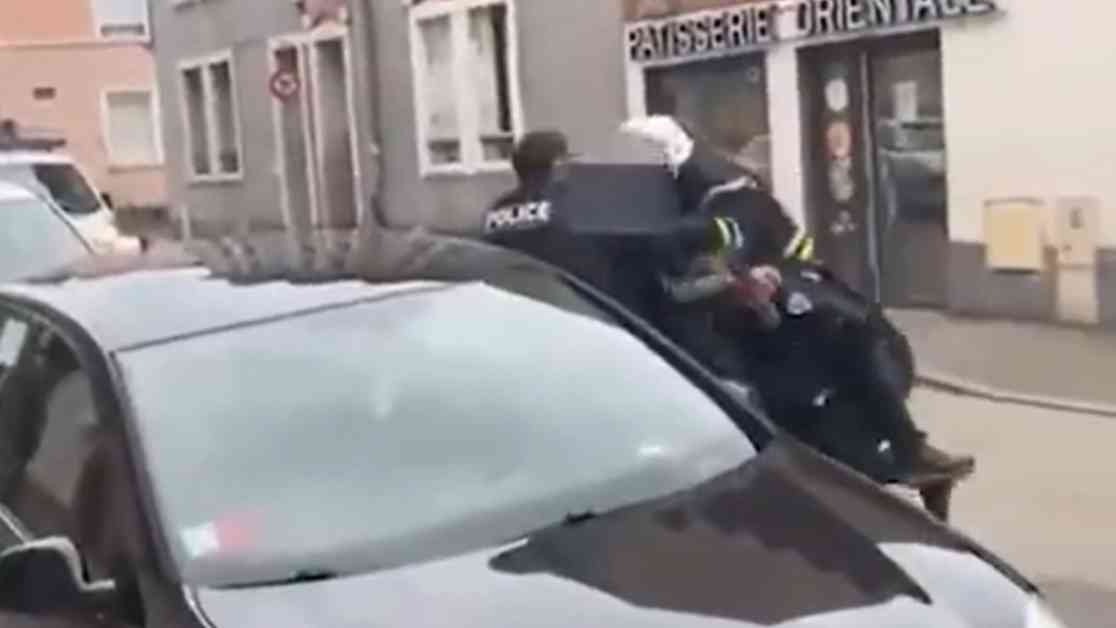The recent arrest of a suspected terrorist in the French town of Mulhouse has left one person dead and five others injured in a horrifying knife attack. The Algerian man, identified as 37-year-old Brahim A, is accused of launching a sick stabbing spree in a bustling market square while shouting “Allahu Akbar”.
Arrest and Immediate Aftermath
The attack occurred on a Saturday afternoon, near the French-German border, as Brahim A targeted innocent bystanders and police officers. The suspect, who had a history of radicalization and a prior conviction for inciting violence, was reportedly on a terrorist watchlist. Despite being sentenced to prison and placed under house arrest, he managed to carry out the violent rampage.
Dramatic footage captured the moment when officers pursued and apprehended Brahim A as he was heading to a police station to sign his house arrest paperwork. Instead, he brandished a knife and began attacking civilians and law enforcement personnel in the crowded market square. The assailant’s actions resulted in the death of a 69-year-old man and left two police officers seriously injured.
Political and Public Response
Following the incident, French President Emmanuel Macron labeled the attack as an “Islamist terrorist act” and emphasized the ongoing efforts to combat terrorism within the country. The local community, politicians, and law enforcement officials expressed shock and outrage at the senseless violence that unfolded in their city.
Mayor Michèle Lutz of Mulhouse condemned the attack, calling it a moment of horror that gripped the entire city. Prime Minister Françoise Bayrou extended condolences to the victims and their families, highlighting the need for unity and resilience in the face of fanaticism. Far-right politicians criticized the government’s approach to radicalization and deportation failures, urging stronger action to combat terrorism.
In the wake of Saturday’s rampage, which is part of a wave of terror attacks across Europe, there has been a renewed focus on security measures and counterterrorism strategies. The incident serves as a grim reminder of the ongoing threat posed by extremist ideologies and the importance of vigilance in preventing future acts of violence.
The tragic events in Mulhouse underscore the persistent challenges faced by authorities in addressing radicalization and ensuring public safety. As communities grapple with the aftermath of such attacks, there is a growing recognition of the need for comprehensive measures to address the root causes of extremism and enhance security protocols to protect citizens from harm.













